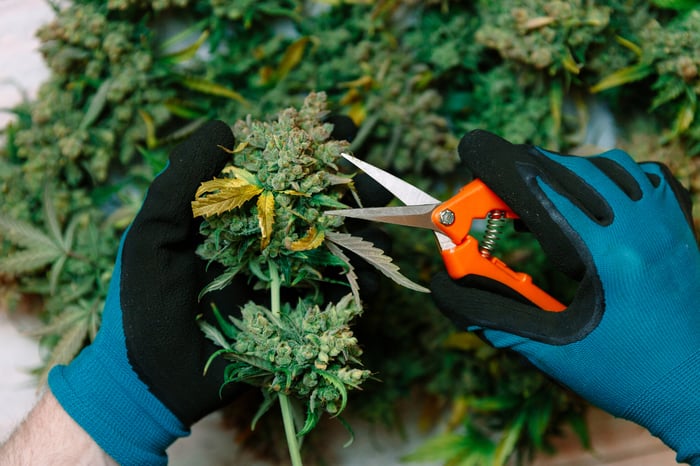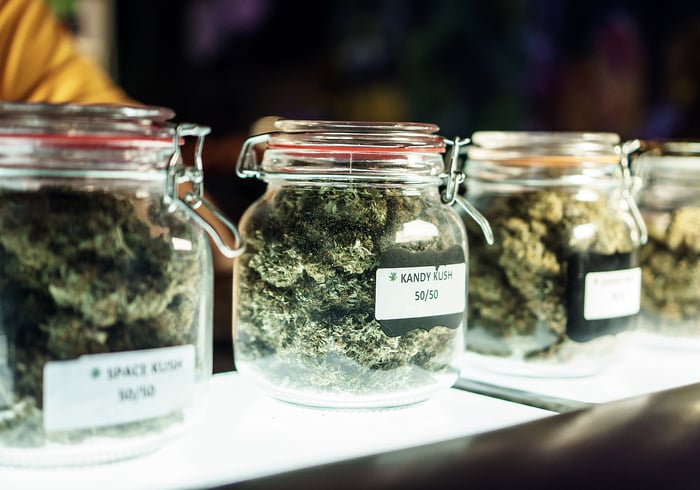This has been a year that the investment community won't soon forget. We've witnessed incredible lows, with the benchmark S&P 500 losing over a third of its value in under five weeks, and monumental highs, with the index recouping all of its losses to hit fresh new highs in less than five months.
If history has taught us anything, it's that any sizable correction in the stock market is a buying opportunity, as long as you have a long-term mindset. That's because every stock market correction in history has eventually been erased by a bull market rally. The longer your time horizon, the bigger the potential gains. That's why it's so important for millennial investors to put their money to work in the stock market.
But there's a big difference between buying quality stocks and throwing darts. While I'm encouraged to see millennials investing in equities, I'm also worried about the quality of companies that young investors are putting into their portfolios. Rather than piling into a number of popular (yet awful) companies, I'd rather see millennials put their money to work in higher-quality alternative businesses.
Consider this an edition of "Buy this, not that" for millennial investors.

Image source: Getty Images.
Drug developers
Don't buy (Inovio Pharmaceuticals): If there's one thing millennial investors love, it's chasing the next big investment. In 2020, that's been coronavirus vaccine stocks. Though there's no question that big money could await the company or companies that develop a successful vaccine, history has shown that betting on Inovio Pharmaceuticals (INO -4.41%) isn't a smart choice.
Last week, Inovio announced that the company's phase 2/3 trial was being placed on partial clinical hold by the U.S. Food and Drug Administration (FDA). The press release from Inovio states that the FDA is seeking additional information about investigational vaccine INO-4800, as well as the proprietary Cellectra 2000 delivery device. With time of the essence, Inovio could fall further behind a number of other deep-pocketed vaccine developers while satisfying the FDA's concerns.
What's more, Inovio doesn't exactly have a successful track record of drug development in its four-decade history. Aside from a solitary phase 3 trial that's ongoing for precancerous cervical dysplasia, Inovio doesn't have a single approved therapeutic to show for its research.

Image source: Getty Images.
Buy this (Alexion Pharmaceuticals): Instead of buying into the highly competitive coronavirus vaccine space, I believe millennials would be much better served purchasing a high-quality drug developer like Alexion Pharmaceuticals (ALXN).
The beauty of Alexion Pharmaceuticals is that it targets ultra-rare disease indications. Though it's a risky approach given how small the patient pools are for certain indications, it also means well-protected cash flow and no pushback from insurers on price if a therapy is approved by the FDA. In Alexion's case, it's been able to pivot blockbuster drug Soliris to multiple indications, and in many instances faces no competition at all.
Additionally, Alexion developed Ultomiris as a long-term replacement for Soliris. With Soliris potentially facing generic competition, Ultomiris steps in as a therapy that only needs to be administered every eight weeks, as opposed to every two with Soliris. This innovation means that Alexion has protected its cash cow indications for another decade to come.
Profitability is far from a given in the biotechnology space, but that's exactly what you'll get with Alexion.

Image source: Getty Images.
Marijuana stocks
Don't buy (Aurora Cannabis): I get it -- millennials love cannabis. This isn't really a surprise given that favorability toward legalization increases as age decreases. But millennial investors would be wise to keep their nose clean of Canadian marijuana stocks like Aurora Cannabis (ACB -0.38%).
Aurora Cannabis was supposed to be the greatest thing since sliced bread in the legalized Canadian pot industry. Instead, it's been a nightmare, with shares of the company down more than 95% since mid-March of 2019. Aurora has closed five smaller cultivation facilities, sold a 1-million-square-foot greenhouse, and halted construction on two of its largest projects in an effort to preserve cash. Despite these efforts, the company's sales are going nowhere fast, with international revenue proving especially disappointing.
Furthermore, Aurora Cannabis wrote down close to $3 billion Canadian in fiscal 2020, with the company finally coming to terms with an ugly balance sheet. Aurora grossly overpaid for its more than one dozen acquisitions since August 2016, and has been repeatedly issuing shares in order to raise cash.
Put simply, Canada is not where you want to be chasing cannabis dollars as an investor at the moment.

Image source: Getty Images.
Buy this (Cresco Labs): If you want to partake in the fast-growing cannabis industry, Cresco Labs (CRLBF -1.19%) is a smart way to do it.
Cresco Labs has two core operations in the U.S., both of which are growing lightning-fast. First of all, the company's wholesale operations should be a major sales driver in the years to come. Earlier this year, Cresco closed its all-share deal to acquire Origin House. Origin House is one of the few companies to hold a cannabis distribution license in California, the biggest pot market in the world. This deal gives Cresco access to more than 575 dispensaries in the Golden State.
Cresco Labs also has 19 operational dispensaries, roughly half of which are located in Illinois. The Land of Lincoln opened its doors to recreational sales on Jan. 1, 2020. Since it's a limited license state with the potential to hit $1 billion in annual sales by 2024, Cresco should have little trouble establishing a significant presence and generating the green for shareholders.





